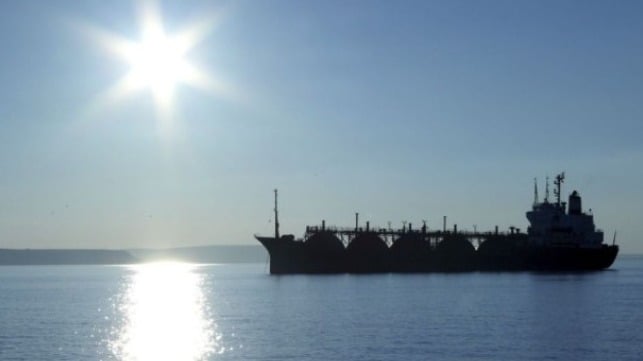Shipping Organizations Call for $5B R&D Effort for Decarbonization

Coordinated to the launch of the International Maritime Organization’s MEPC 75 sessions discussing the efforts to lower carbon emissions, eight of the leading shipping organizations joined together calling on the IMO to back the proposed industry-financed, $5 billion research and development program to accelerate the decarbonization of the maritime industry. The proposal builds on the previous $2 per tonne charge on bunker fuel sales that the International Chamber of Shipping and others have been advocating for as a means to focus the industry’s efforts.
The organizations, which collectively represent all sectors of shipping from cargo to passengers and over 90 percent of the world’s merchant fleet, recognized that “there is a limit to what can be achieved so long as ships remain dependent on fossil fuels and global demand for maritime services continues to grow.” While they highlighted the industry’s seven percent reduction in emissions since 2008, they recognized the need for immediate action to identify and develop new zero-carbon technologies so that commercially viable zero-carbon ships can begin to operate in the next decade.
The proposal the groups are advocating calls for a $5 billion R&D program, to be overseen by IMO and financed through a mandatory R&D contribution of USD 2 per tonne of marine fuel consumed. The R&D program would be managed through a non-governmental research and development organization, the International Maritime Research and Development Board, or IMRB.
The co-sponsors emphasize that for their proposal to work, the R&D contributions need to be mandatory via an IMO regulation, to ensure that all shipping companies globally contribute, in a fair and equitable manner. This would ensure the funding necessary to pursue the R&D program. They emphasized that the $2 levy would only exist for the technical purpose of accelerating R&D for zero-carbon propulsion systems.
While they are several potential solutions, such as hydrogen or ammonia produced from renewable energy sources, the shipping organization highlighted that a range of complex technical questions remains to be answered. Not only the need to produce any of these solutions on a scale to support the global shipping industry, but also safety, storage, distribution, energy density considerations, and lifecycle impacts.
The IMRB would be quasi-independent, subject to IMO oversight, with the sole duty to accelerate the research and development of low-carbon and zero-carbon fuels, energy sources, propulsion systems, and other new GHG reduction technologies, operating under a charter approved by IMO. Funding amounting to $5 billion over the next ten years from the $2 per tonne levy on fuel administer by an International Maritime Research Fund (IMRF).

that matters most
Get the latest maritime news delivered to your inbox daily.
The organizations emphasized that the IMRB is designed to work itself out of a job in 10 to 15 years by delivering research and development projects that will then allow commercial entities to provide the technologies and services to the shipping industry. Other relevant stakeholders such as energy suppliers, technology companies, research and development institutions, and foundations would be welcome to participate according to the proposal.
The organizations that joined together for the proposal are: BIMCO; Cruise Lines International Association; INTERCARGO; Interferry; International Chamber of Shipping; INTERTANKO; International Parcel Tankers Association; and the World Shipping Council.
